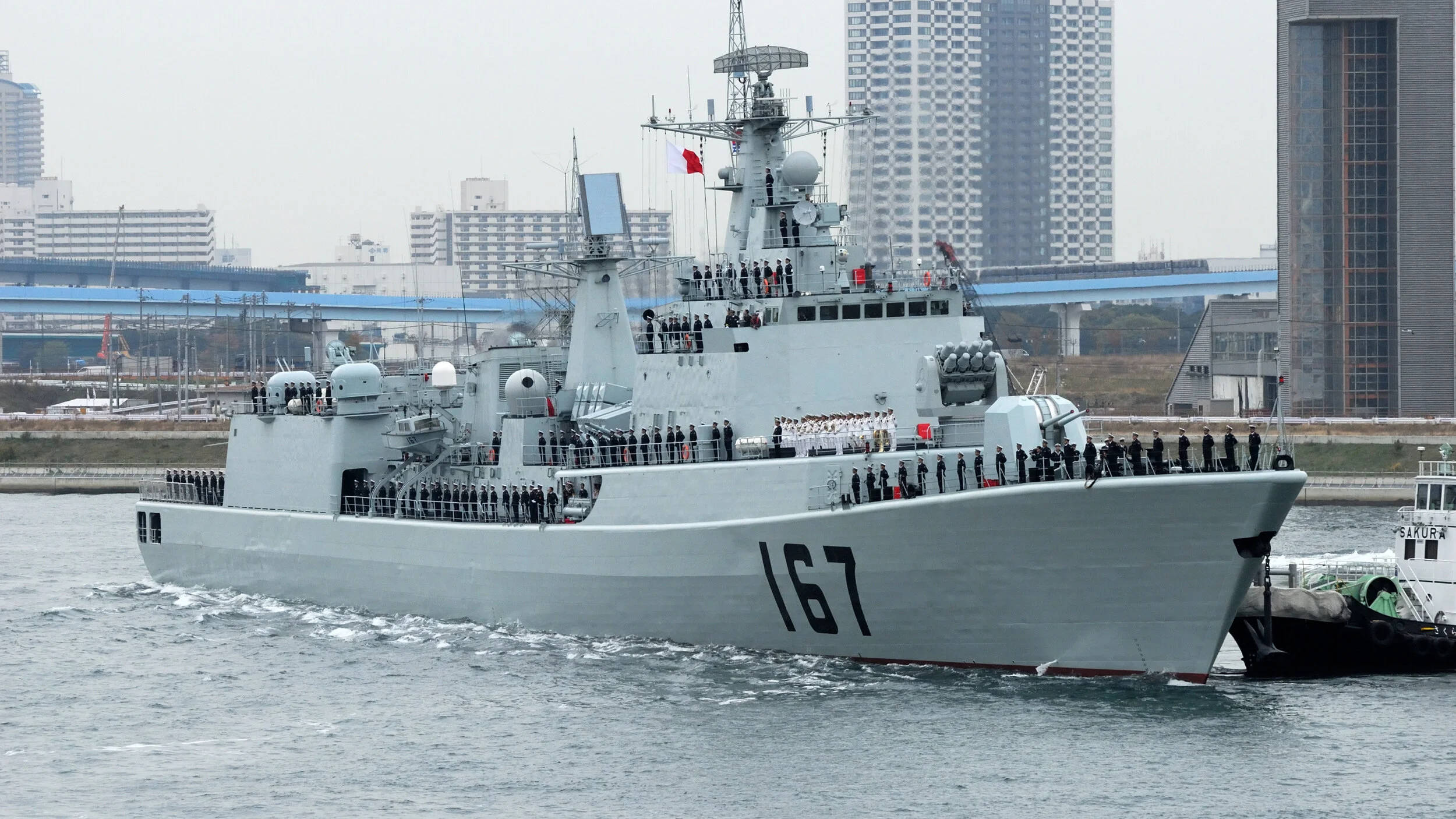Why Gen Z should care about Defence
By Freya Leach
First published in the MRC’s Watercooler newsletter. Sign up to our mailing list to receive Watercooler directly in your inbox.
My generation, Gen Z or ‘Zoomers’, have been misled about the true existential threat we face. We’ve been convinced that the climate crisis is the greatest threat to our civilisation. The idea that ‘boomers’ are making decisions today with no regard for their future environmental impact is driving young people to throw cans of soup on the Mona Lisa, glue themselves to roads and drench public buildings in fake blood. But where is the protest over our defence policy?
The threat we face is greater.
Globally, we are witnessing three concerning trends that make inaction on defence a serious threat to our generation’s future.
The decline of Western military dominance.
The emergence of a new “axis of evil”.
Neo-colonialism by authoritarian powers.
While I sit here penning this week’s Watercooler, the People’s Republic of China is engaging in the largest arms build-up of any country since World War 2. Its defence spending has risen by 75% in the last 10 years. As the recent National Defence Strategic Review found, breaking with the last 80 years of unipolar American dominance in the Indo-Pacific, we are now facing a “radically different” set of strategic circumstances. “Major power competition in our region has the potential to threaten our interests, including the potential for conflict.”
The Heritage Foundation’s index on American military power found the US would be unable to meet the demands of a single major regional conflict while also attending to various presence and engagement activities. The US is ill-equipped to handle two simultaneous major regional conflicts – a situation that is made more difficult by the weak condition of key allies. Across the Atlantic, only 7 out of 30 NATO countries are reaching their “Defence Investment Pledge” to spend 2% of GDP on defence. Very concerningly for an island country, Australia is operating our oldest naval fleet ever and we are facing acute personnel shortages with the Australian Defence Force (ADF) not hitting a single recruitment target since 1996. The end of Western unipolar dominance, particularly in the Indo-Pacific, is a radical shift from the last 80 years of our strategic situation. We should not underestimate the prospect of conflict in this uncertain environment.
There is a new “axis of evil” forming with Russo-Iranian-Sino partnerships escalating significantly. From conducting joint military exercises to multi-billion dollar weapons deals, the coalition of autocrats is strengthening. The globe appears to be dividing into two geopolitical hemispheres, with the English-speaking world, NATO, Japan and South Korea on one side and an authoritarian bloc — China, Russia, Iran, Pakistan and North Korea — on the other.
For all my generation’s hysteria about “colonisation”, they are silent about the new colonisation occurring as China, Russia and Iran expand their presence around the world. Iran is leveraging Hezbollah, Hamas, Houthis and over a dozen other terrorist groups operating throughout the Middle East. These fanatical proxies are used to advance the Iranian regime’s goal of “Death to America” and build regional dominance. While China has just one declared overseas military base in Djibouti, the PLA's Strategic Support Force operates tracking, telemetry, and command stations in numerous countries including Pakistan, Namibia, Kenya, and Argentina. Chinese state-owned banks have lent billions to expand seaports around the world. Some defence analysts believe this ‘investment’ is laying the groundwork for further naval expansion. Vladimir Putin has openly compared his invasion of Ukraine to the eighteenth-century Russian Czar Peter the Great’s imperial conquest. Russia seeks to destabilise Western allies and expand its influence through disinformation campaigns operating out of “troll farms” and mercenary activity throughout Africa and the Middle East. Once you grasp the scale of the authoritarian bloc’s expansion it is impossible to see this as anything other than a neo-imperialist campaign to wrangle global dominance away from the West.
Si vis pacem, para bellum.
If you want peace, prepare for war. Today we call this “deterrence”. Effective deterrence is predicated on a defence force with the capacity to guarantee consequences for any aggression. Defence Minister Richard Marles does not project the strength or resolve necessary for effective deterrence. He was missing in action on the US request for warships in the Red Sea. To make matters worse Defence officials confirmed that Marles “was unable or [had] other commitments” to be able to participate in a videoconference with US Defence Secretary Lloyd Austin following the request. The Albanese Government is yet to explain why it chose not to donate Australia’s out-of-service MRH-90 Taipan helicopters to Ukraine nor has it answered Ukraine’s request for more Australian coal shipments for months.
The recruitment and retention crisis in the ADF is also getting worse. As of 1 January 2024, the ADF is 4,308 people below its authorised strength. The time taken to recruit personnel has surpassed 300 days.
When members of the ADF were attacked by a Chinese destroyer in November last year, Albanese had the chance to confront Chinese President Xi Jinping during a meeting the following day. He failed to confirm whether he had done so, leaving little doubt that despite having the chance to stand up for Australian personnel, the Prime Minister chose the weaker path and failed to do so. Labor’s weak and indecisive approach to defence is undermining our deterrence capability, making it harder, in the long run, to guarantee peace for Australia.
Conclusion
For young people, the decisions made today become the reality we must live with in 10, 20 or 30 years. In no other policy sphere is that truer than defence. The cracks we see emerging, unless sealed, will become the perilous cliffs our generation must navigate. Just 20% of the world lives in free countries. Our liberal democracy is a rare privilege and history tells us it must be fiercely defended.

